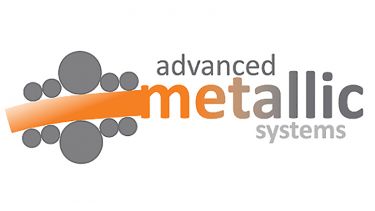During his placement at Rolls-Royce, final year EngD researcher Ashley Scarlett conducted an enhanced literature review, analysed mechanical testing data, and developed a practical understanding of engineering in an industrial context. This allowed him to contribute to ongoing projects, collaborate with seasoned engineers, and gain insight to the importance of processes in materials engineering. The transformative experience deepened his technical knowledge and ability to apply engineering principles in the real world, helping form Ashley into a more well-rounded and capable engineer.
Ashley is a final year EngD researcher, working on the quality heat treatment of low-alloy steels. His main goal is to develop an understanding of scalability of results, finding a relationship between small lab-scale tests, often only weighing a few grams and measuring millimetres, and large industry-scale components, weighing several tonnes and often having section thicknesses approaching a meter. Collaboration is essential for this kind of work and so while 91̽»¨ has been the centre-point, work across Rolls-Royce, 91̽»¨ Forgemasters, The University of Manchester and the Henry Royce Institute has been carried out.
The time I've spent with Rolls-Royce has been an excellent experience. I’ve consolidated and applied the knowledge I've worked to acquire over the last four years in a professional engineering environment and I've learned so much over the last 6 months. Most notably on industry standards and practices that I would not have been able to get stuck in with outside of the industrial context. I'd highly recommend taking the opportunity to go on placement to any student, undergraduate or postgraduate, especially where their work ties in strongly.
Ashley Scarlett
The Advanced Metallic Systems Centre for Doctoral Training has a strong industrial focus, with researchers often sponsored by world-renowned engineering firms on cutting-edge projects. Still, a disconnect can remain between the knowledge generated in academic institutions and its application in higher Technology Readiness Level (TRL) activities such as product development, which could pose a challenge to the efficient transfer of research findings. While academic research is crucial for advancing scientific understanding, it can lack the immediate practicality needed for industrial applications.
During Ashley’s six month placement at Rolls-Royce, he addressed this by conducting in-depth reviews focussing on enhancing the Rolls-Royce knowledge base concerning low-alloy steels. By gaining access to proprietary data, and adopting a more industry-oriented mindset, he was able to tailor his research to align closely with the company’s specific goals.
We were very pleased to have Ashley completing an industrial placement with us at Rolls-Royce. We provided Ashley with tasks that were directly linked to his academic research allowing him to apply his knowledge gained from research to an industrially relevant challenge. Other tasks outside Ashley’s research area were also undertaken to give Ashley a more rounded experience of the tasks and challenges that we deal with on a regular basis. Ashley completed some very good work while he was on his placement with us, which we have benefited from and has provided Ashley with valuable industrial experience. We strongly recommend any future EngD or PhD students consider such a placement.
Matthew Dear
Rolls-Royce Industrial Supervisor
This was a unique opportunity to collaborate with experienced engineers, gain valuable insight to material development and testing and consolidate knowledge from various research projects from multiple doctoral programmes across different academic institutions.
Ashley’s approach sought to create synergy between academia and industry through active engagement with Rolls-Royce, adopting an industrial perspective and collaborating with their experienced engineers. He aimed to optimise knowledge and findings and thereby facilitate the transition of academic theories into industry-ready solutions.
It can be difficult to measure direct industry output from large research projects such as doctorates as they’re not necessarily tangible publications, but Ashley has identified three key outputs from his placement:
- Knowledge Integration - Research focussed on addressing the disconnect, and an in-depth literature review and consolidation of knowledge from numerous sources began to bridge this. The impact lies in the potential to integrate academic knowledge into industrial practice, enhancing the relevance of research findings.
- Industry Alignment - Active involvement with industrial partners and the adoption of an industry-oriented mindset intends to align research efforts with specific goals and demands to increase the relevance of research to industry needs.
- Collaboration and Knowledge Transfer - Close collaboration with experienced engineers developing practical insight to material development and testing. Consolidation of knowledge and the literature review aims to streamline knowledge transfer. In addition, working with existing captured knowledge, the mechanism of data capture in academic settings has been revised to streamline the knowledge pipeline on future projects making a more efficient and effective transfer of academic findings to practical solutions.


